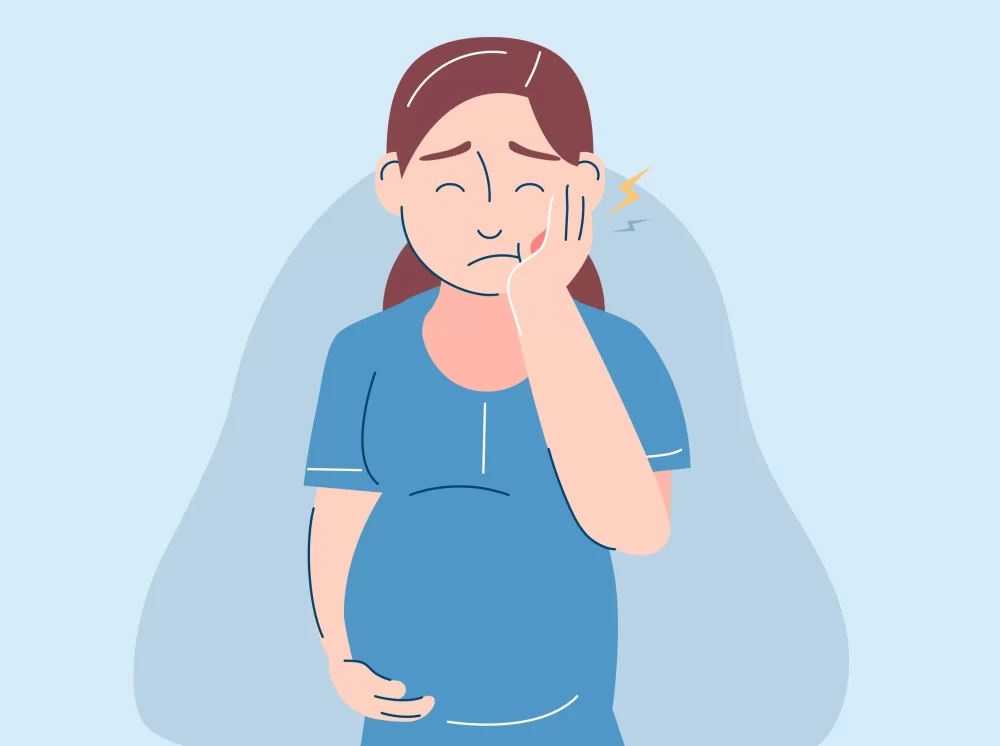
How I Handled a Toothache During Pregnancy and What You Should Know
When I was five months pregnant with my first child, I woke up in the middle of the night with a dull, throbbing pain in my lower molar. I tried to ignore it, thinking it might just be from clenching my jaw in my sleep, but the discomfort lingered for days. Eventually, it became clear that I was dealing with a real toothache—something I hadn’t prepared for during pregnancy.
1. Understanding the Risks of Dental Pain During Pregnancy
At first, I hesitated to visit the dentist. I wasn’t sure if the usual procedures were safe while I was expecting. But here’s what I learned: ignoring dental pain during pregnancy isn’t just uncomfortable—it can also be risky. Gum disease and infections can lead to complications like preterm birth or low birth weight. That realization was enough to get me to call my OB-GYN and then a dentist experienced in treating pregnant women.
2. What Causes Toothaches During Pregnancy?
There are several reasons why pregnant women are more prone to dental problems. In my case, hormonal changes were the main culprit. These fluctuations can increase blood flow to the gums, making them more sensitive, swollen, and prone to bleeding. Plus, morning sickness can expose teeth to extra acid, leading to enamel erosion.
I was brushing and flossing regularly, but I’d slacked a little on my dental cleanings because I thought I should wait until after birth. Turns out, that was a mistake. Pregnancy doesn't pause dental health—it intensifies it.
3. What I Did First: Home Remedies That Are Safe
While I waited for my dental appointment, I turned to a few safe home remedies. I rinsed my mouth with warm salt water to reduce swelling and kill bacteria. I also used a cold compress on the outside of my cheek to numb the area. Tylenol (acetaminophen) was the only over-the-counter pain reliever my doctor said was safe in moderation, so I took it only when the pain became unbearable.
4. Visiting the Dentist While Pregnant: What to Expect
My dentist was incredibly reassuring. He explained that dental X-rays are generally safe during pregnancy, especially with proper shielding. Still, because my pain wasn’t from a serious infection, we avoided X-rays for now. He performed a gentle exam and found that I had a small cavity that had grown deeper than expected. He used a numbing agent safe for pregnancy and treated the cavity quickly.
One key takeaway: always inform your dentist and hygienist that you're pregnant. They’ll adjust your care accordingly and avoid certain medications or procedures, especially during the first trimester.
5. Best Practices for Preventing Toothaches During Pregnancy
After my experience, I took several steps to protect my dental health for the rest of my pregnancy. Here’s what worked for me:
- Brush twice a day with a fluoride toothpaste.
- Floss daily to remove plaque from between teeth.
- Rinse after vomiting to neutralize stomach acid, using a mix of baking soda and water if needed.
- Eat calcium-rich foods to support your own teeth and your baby’s bone development.
- Visit your dentist early in pregnancy for a check-up and cleaning.
6. Real Stories from Other Moms-to-Be
I joined a pregnancy forum and found that I wasn’t alone. One woman shared how she had a root canal done in her third trimester with no issues. Another avoided the dentist and ended up with a gum abscess that required antibiotics. The takeaway? Address pain early and don’t self-diagnose—every situation is different, and only a professional can tell you what’s safe and necessary.
7. When to Seek Urgent Dental Care During Pregnancy
If you experience swelling, fever, pus, or severe pain, it could be an infection, and that’s an emergency—pregnant or not. Don't hesitate to call your dentist or OB-GYN. Infections can spread quickly and could harm you and your baby if left untreated.
8. Final Thoughts from a Mom Who’s Been There
Dealing with a toothache during pregnancy was not on my checklist, but it taught me the importance of prioritizing oral health. Don’t wait for pain to escalate. Partner with healthcare providers who understand pregnancy-related dental care. And most importantly, listen to your body—it knows when something’s off.
If you’re pregnant and dealing with tooth pain, don’t panic. Safe, effective treatments are available. And if you need help finding the right provider, we recommend visiting Dentistry Toothtruth—they specialize in connecting you with trusted dental care during pregnancy.







 Dental Associates of St Paul3.0 (283 review)
Dental Associates of St Paul3.0 (283 review) Ryan L. Lindner, DDS0.0 (0 review)
Ryan L. Lindner, DDS0.0 (0 review) HOLISTIC DENTAL AND WELLNESS CENTER3.0 (8 review)
HOLISTIC DENTAL AND WELLNESS CENTER3.0 (8 review) Lake County Family Dental Care4.0 (449 review)
Lake County Family Dental Care4.0 (449 review) Andrew Hoffman, DMD5.0 (160 review)
Andrew Hoffman, DMD5.0 (160 review) Dr. Edward R. Haggerty Jr, DDS3.0 (7 review)
Dr. Edward R. Haggerty Jr, DDS3.0 (7 review) The Importance of Oral Health Education During Pregnancy for a Healthy Pregnancy
The Importance of Oral Health Education During Pregnancy for a Healthy Pregnancy Best Tips for Brushing Your Teeth Properly for Healthy Gums: Essential Techniques for Oral Health
Best Tips for Brushing Your Teeth Properly for Healthy Gums: Essential Techniques for Oral Health Why Skipping Dental Checkups Can Lead to Bigger Oral Health Problems
Why Skipping Dental Checkups Can Lead to Bigger Oral Health Problems Advantages of Porcelain Dental Restorations
Advantages of Porcelain Dental Restorations How Can Diabetes Cause Tooth and Gum Problems? Preventing and Managing Oral Health Issues
How Can Diabetes Cause Tooth and Gum Problems? Preventing and Managing Oral Health Issues Healthy Habits for Promoting Good Oral Health and Hygiene: Tips for a Healthy Smile
Healthy Habits for Promoting Good Oral Health and Hygiene: Tips for a Healthy Smile